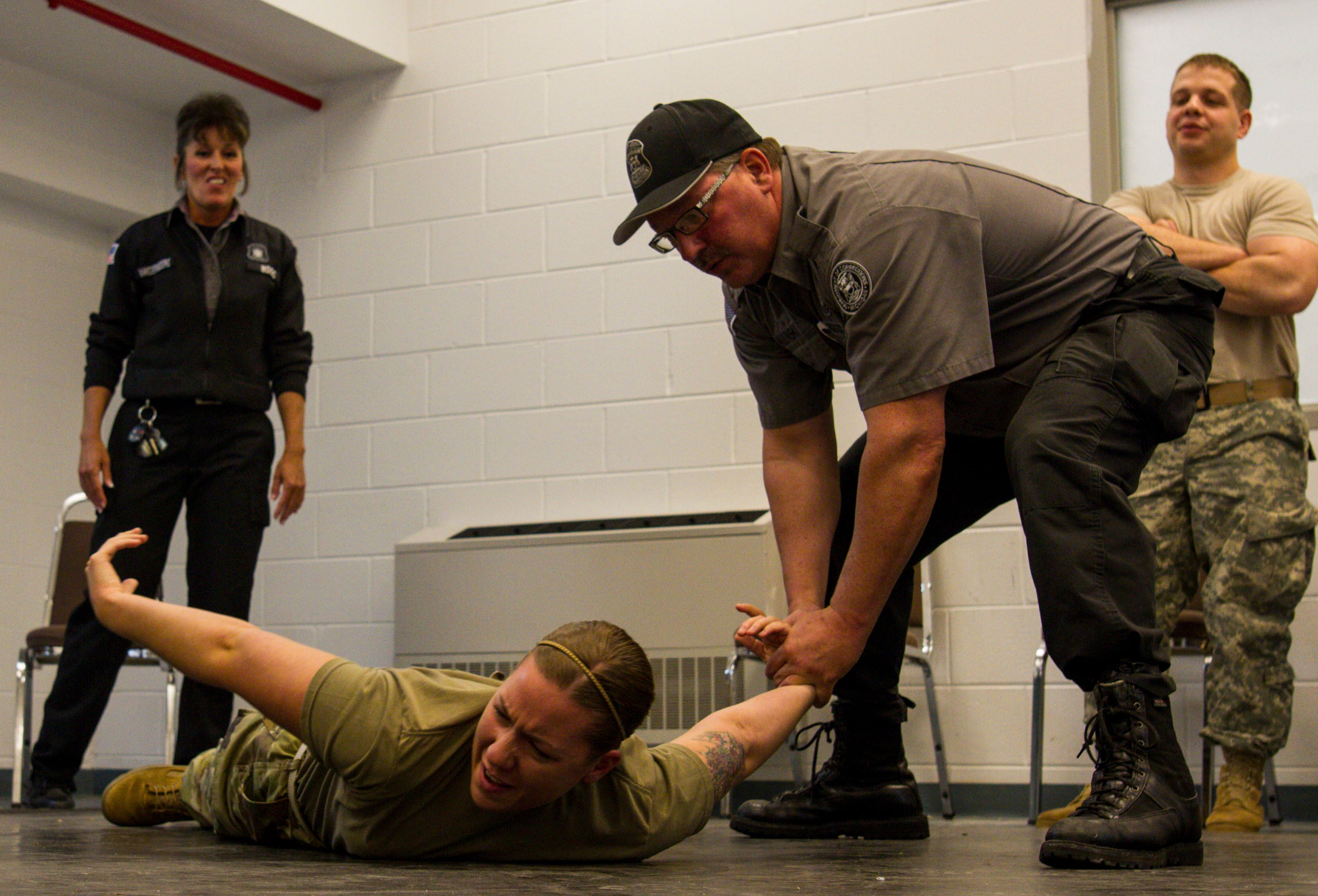Well, it’s happened. Your command has charged you with crimes under the Uniform Code of Military Justice.
But regardless of whether this is a fake vendetta against you by the brass or they’ve actually got you dead to rights, you remain innocent until proven guilty in a court of law.
How you play this going forward — how well you know your rights and even how you conduct yourself during this difficult time — could affect the outcome of your case.
Here’s what you should do — and not do — if you’re in a jam, according to criminal defense attorneys who represent service members.

DON’T waive your rights.
Attorneys Mike and Lauren Hanzel say one of the biggest mistakes accused service members make is when they waive their rights before speaking to defense counsel.
The Hanzels both served as Navy attorneys before hanging their private practice shingle and opening the Hanzel Law Firm in South Carolina.
“People don’t usually think of if this way, but if you have been read your Article 31(b) rights, and you continue to talk to NCIS or whomever is questioning you, you are making a potentially game-changing decision in your case without the benefit of any advice from a lawyer with your interests in mind,” Mike Hanzel said.
While it’s good to be cooperative, don’t waive your right to speak to an attorney when they sit you down, he added.
“Exercise those rights politely but firmly,” he said. “Reach out to a defense attorney right away if you believe you are being accused.”
“Put differently, you get to phone a friend,” added Zachary Spilman, a former Marine Corps attorney now in private practice in Massachusetts who also runs the military law news site CAAFLog.com.
“The right to an attorney includes the right to have an attorney present for questioning, and so if you want to tell your story do it with a lawyer friend by your side (and watching your back).”
Be firm but professional when sticking up for yourself. Refuse a commander’s request and if the command tightens the screws, lawyer up, Spilman said.
DO stay silent until you get an attorney.
You can’t schmooze your way through this, according to Michael Berens, a Seattle-based defense attorney who served eight years as a judge advocate in the Air Force.
“Many service members believe that they can cooperate and talk their way out of an investigation,” Berens said.
Authorities aren’t required to tell you what evidence they have against you, nor are they required to be honest with you, he said.
“You are not on a level playing field if you are under a rights advisement and being interviewed by military investigators,” he added, so demand to see an attorney “immediately.”
“They may play a game where you sit around for a long time and wait,” he said. “Tough it out. Be patient. Be quiet. Seek counsel.”
Any statements you give can’t be used on your behalf at trial. They can only be used by prosecutors, so zip it until your lawyer is in place, Spilman said.
“You’re being questioned because they want you to talk, and talking only helps the prosecution,” he said.

DON’T consent to a search.
“Consenting to a search means law enforcement can search everything,” Spilman said. “They can tear apart a house, trawl through email archives, and electronically dump a cell phone’s memory.”
Make them go get a search warrant, which specifically identifies places or items to be searched and what can and cannot be seized, according to Spilman.
“If you want to show or give something to law enforcement then show or give it (and only it) to them,” Spilman said. “Don’t let them go looking for it on their own.”
DO keep it classy and professional.
This will undoubtedly be a trying time for you but remember to continue conducting yourself in a way that befits you, your family, your uniform and your country.
Your behavior and attitude matter, according to Grover Baxley, a Virginia Beach-based attorney specializing in military law.
“Even when facing charges, continue to work hard, show initiative and maintain a good attitude,” Baxley said. “Some commands make this difficult to do by pulling you from your job or treating you poorly.”
“Rise above it,” he added. “It can ultimately make a big difference in your case if you’ve continued to show you’re a dependable, committed service member.”
“There is a spotlight on you when you are accused of a crime, so continue to do your job the best you can while the accusation is hanging over your head, and do not do anything risky during that time,” Mike Hanzel said.
“Dealing with UCMJ accusations is usually a marathon, not a sprint.”
DON’T believe the hype about lie detector tests.
Also known as polygraphs, the tests are largely a fake crutch for law enforcement, Spilman said.
“The results of a polygraph are inadmissible in court because a polygraph is not a reliable tool to determine if someone is telling the truth,” he said. “It is, however, an excellent tool to cause people to confess, and it does that all the time.”
To give you a sense of how law enforcement can play on the accused’s ignorance of the system to coerce confessions, Spilman sent over this clip from the classic TV show The Wire, which you need to watch on your next deployment.
DO deal with your attorney the right way.
Whether you’re paying for private counsel or working with the attorney the military gave you, make sure you stay involved with what’s going on, according to Eugene R. Fidell, a civilian attorney specializing in military law.
“Require your attorney to keep you fully informed about the process of the case and any significant issues,” he said. “This applies both at trial and on appeal.”
Fidell suggests ensuring you and your attorney also have the “long view” of the case in mind, including any post-trial appeals.
They’re there to help, so provide complete and accurate information to them. It’s protected under the attorney-client privilege.
“If you and your attorney have differing approaches to the case that cannot be reconciled, get another attorney,” Fidell added.
DON’T get pressured to take a plea deal.
Don’t cave and take a guilty plea without talking to a qualified lawyer, Berens said.
If you’re unsure about the advice you’re getting from the military attorney appointed for you, ask for a new one or consult a civilian, he said.
“Many civilian military defense counsel offer an initial consult free of charge,” Berens said. “Not all civilian military defense counsel are equal — be sure to do your research.”
DO consider tweeting your case to the Commander in Chief.
In light of the recent case involving Special Warfare Operator Chief Edward “Eddie” Gallagher and President Donald J. Trump inserting himself into the military justice process, Baxley said such a move could be a potential Hail Mary.
“When all else fails, post sycophantic praise of President Trump on every social media outlet you can find,” Baxley said. “Even if there’s overwhelming evidence of your guilt, you may earn yourself a pardon.”
DON’T make it worse.
Stay out of more trouble so you don’t get additional charges stacked against you. Avoid witnesses. You shouldn’t have to be told this, but it happens.
Geoff is the managing editor of Military Times, but he still loves writing stories. He covered Iraq and Afghanistan extensively and was a reporter at the Chicago Tribune. He welcomes any and all kinds of tips at geoffz@militarytimes.com.





